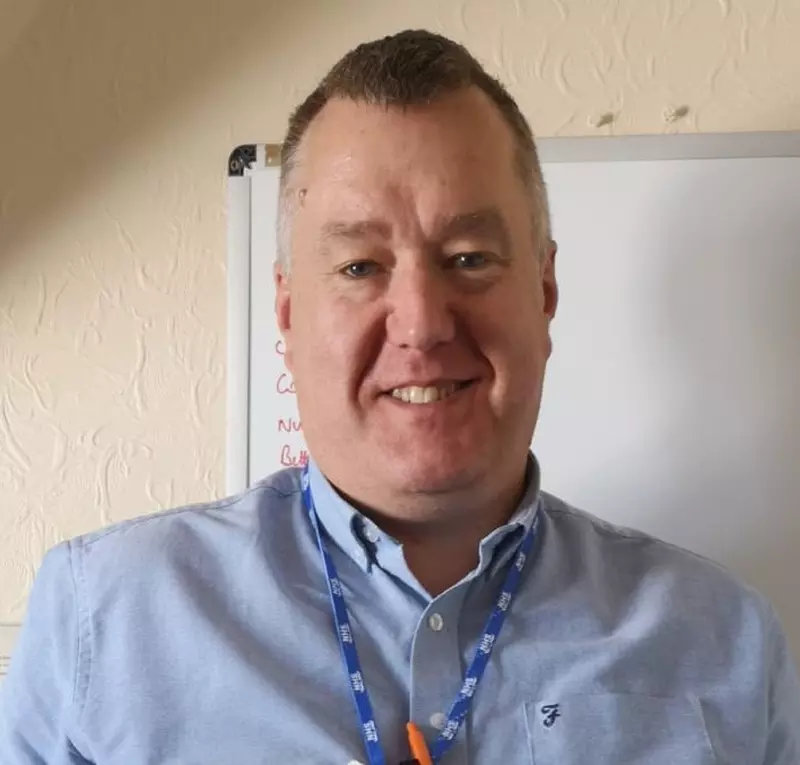Getting to know...a Parkinson's nurse
Nick Bryden is a Parkinson’s nurse in Ayrshire, Scotland. We find out more about his day-to-day work.

What’s your background and how did you get into your current role?
I trained as a general nurse in my early 30s. When I qualified I worked in a geriatric rehab ward, where I met lots of people living with Parkinson’s.
I ended up shadowing a Parkinson’s nurse in my spare time and went on home visits with her. Seeing a person in their home environment with their partner or family helped me develop a real sense of the condition and I learned a huge amount.
I was lucky enough to become a Parkinson’s nurse for the Ayrshire region in 2010. I’m one of 2 Parkinson’s nurses covering our region, and we work closely with the consultant and the Parkinson’s local adviser. At the moment we have around 700 patients.
Ayrshire is a beautiful place and a popular area for people to retire to, so we do find we have more and more patients using our service. I also have 3 relatives with Parkinson’s – 2 of which use the same service.
We’ll often have patients who are newly diagnosed and coming to terms with their diagnosis. Talking to someone’s partner, relative or friend really helps a nurse to get a more rounded picture of what is happening, and we can offer support and information to them too.
What does a Parkinson’s nurse do?
During an appointment we’ll have a conversation with a patient about their symptoms and any other medical issues that they might be having problems with. A large part of the role is helping people manage their medication, so they get the best results and fewer side effects. I’m a prescriber which means I’m qualified to make changes to someone’s medication, but not every Parkinson’s nurse is able to do this.
We’ll often have patients who are newly diagnosed and coming to terms with their diagnosis. Talking to someone’s partner, relative or friend really helps a nurse to get a more rounded picture of what is happening, and we can offer support and information to them too.
If there’s something that we can’t help with, we’ll make a referral to someone who can, like a speech and language therapist or physiotherapist.
Parkinson’s nurses also provide a lot of education – for example, training other healthcare professionals to make sure people with Parkinson’s get their medication on time in hospital.
What health and care tips can you give to someone with Parkinson’s?
My top tips would be:
- Invest in a medication timer, or use your mobile phone. Set 2 alarms each time your medication is due – this helps make sure you never miss a dose.
- Use a sealed cup for carrying drinks around the home – it ensures you don’t spill anything and means you can concentrate more on walking.
- If it’s safe, use a steak knife for cutting up any food. This helps if you find it hard to use pressure when using cutlery.
- Stay as active as you can – this helps in so many ways, both physically and mentally.
Please tell us everything so we can help you. Some people come to see us not wanting to bother us, but that’s what we’re here for.
How can someone best prepare for an appointment with their Parkinson’s nurse?
Our region was one of the early adopters of video calls as coronavirus first hit, and it’s still something we’re using. Whether you have a video, phone or face-to-face appointment, there are always things that will make an appointment run smoother.
It’s always good to think about your top 3 issues relating to Parkinson’s. What is bothering you at the moment? What is difficult?
It’s helpful to have a list of drugs you’re taking, or even bring your medication along if it’s a face-to-face appointment.
Please bring someone close to you if you like – this is helpful for both parties.
And be honest with us! Please tell us everything so we can help you. Some people come to see us not wanting to bother us, but that’s what we’re here for.
- The process for accessing a nurse is different depending on where in the UK you live. In some areas you can self-refer, or you may have to be referred through your GP or specialist. Try asking your GP surgery as a first point of call. If you have any problems or would like to find out more, please contact our helpline on 0808 800 0303 or email [email protected]

